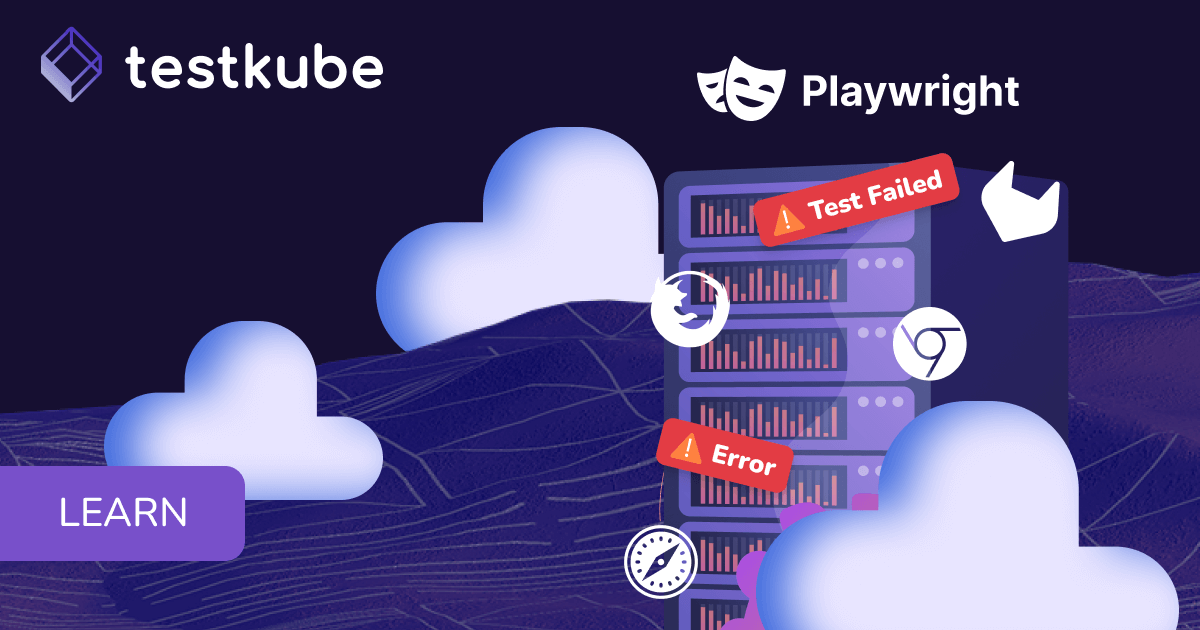

Table of Contents
Try Testkube instantly in our sandbox. No setup needed.
Try Testkube instantly in our sandbox. No setup needed.




Table of Contents
Executive Summary
API testing has become an essential part of the software development lifecycle, ensuring that APIs function correctly and maintain optimal performance. With the growing adoption of Kubernetes for container orchestration and management, developers need efficient tools for API testing in Kubernetes environments. In this article, we will explore the challenges of API testing in Kubernetes, suggest some popular tools for testing, and introduce Testkube as a comprehensive solution for addressing these challenges.
Challenges of API Testing in Kubernetes
API testing in Kubernetes presents several challenges that can affect the efficiency and effectiveness of the testing process:
Complexity
Kubernetes introduces a new layer of complexity in managing containerized applications and services, making it harder to isolate, test, and troubleshoot issues. The Kubernetes control plane, with the API server at its core, manages resources and exposes API endpoints for interacting with various resource types and API objects.
Dynamic Environment
Kubernetes deployments are highly dynamic, with frequent changes to the underlying infrastructure, such as autoscaling and rolling updates. This can make it difficult to conduct consistent API testing. Resources are dynamically created, updated, and deleted, and API versions and API groups help manage the evolution of these resources.
Service Discovery and Communication
In a Kubernetes environment, service discovery and communication can be complicated due to multiple microservices and the service mesh, impacting the API testing process. External components and other components communicate with the API server using RESTful API calls, client libraries, and command line interfaces such as the kubectl command.
Authentication mechanisms are required for secure access to the API server, and the process of accessing and managing Kubernetes resources can be performed in multiple ways, including through proxy mode, HTTP clients, and direct API requests.
Popular Tools for API Testing in Kubernetes
There are several tools available that can help you perform API testing in Kubernetes environments:
- Postman: Postman is a widely-used API testing tool that allows developers to create and manage API requests, validate responses, and automate tests. It also supports collaboration among team members, making it easy to share tests and monitor results. Read our guide on API testing in Kubernetes with Postman and Testkube.
- K6: K6 is an open-source, cloud-native load testing tool that supports API testing in Kubernetes. It allows developers to create test scenarios in JavaScript, run them locally or in the cloud, and generate detailed test reports. K6 can run tests in parallel and supports test orchestration for large-scale API tests, making it ideal for automating parallel tests and managing test execution within CI/CD pipelines. You can find our load testing in Kubernetes with k6 and Testkube tutorial here.
- Insomnia: Insomnia is another popular API testing tool that supports testing in Kubernetes environments. It features an intuitive interface for creating and managing API requests, as well as support for automatic test generation and validation. Insomnia helps manage test data and environment variables for more reliable API tests, improving collaboration between development and testing teams.
- Karate: Karate is an open-source API testing tool that supports behavior-driven development (BDD) and native support for testing microservices. It also includes support for service discovery and communication in Kubernetes environments. Karate provides real time logs and status code validation during test execution, ensuring that APIs are properly tested and issues are quickly identified.
These tools enable you to run tests, orchestrate parallel tests, and ensure APIs are thoroughly tested in Kubernetes environments by managing test data, environment variables, and providing real time logs and status code validation.
How Testkube Can Help API Testing in Kubernetes
While the above tools can be useful for API testing in Kubernetes, they do not provide a comprehensive solution for addressing the challenges associated with this process. Testkube, on the other hand, is specifically designed to help teams streamline their API testing process in Kubernetes environments.
Testkube provides a range of features and capabilities that make it easier to manage API testing in Kubernetes, including:
- Easy integration with existing CI/CD pipelines
- Support for parallel test execution and scaling
- Advanced test orchestration for managing complex test workflows
- Automated service discovery and communication
- Support for different deployment strategies and managing new resources and resource types via API endpoints
- Detailed test reporting and analysis
- Advanced testing capabilities, such as load testing and security testing
With Testkube, developers can conduct API testing in Kubernetes environments with greater efficiency and effectiveness, ensuring that their applications are performing as expected and maintaining optimal performance. Testkube interacts directly with Kubernetes resources and API resources, allowing users to create, update, and validate resource fields as part of the development process.
Testkube supports features from early development through general availability, ensuring robust API testing throughout the software lifecycle.
Conclusion
API testing in Kubernetes presents several challenges, including complexity, a dynamic environment, and service discovery and communication. However, with the right tools and solutions, developers can streamline their testing process and deliver high-quality software. Popular tools like Postman, K6, Insomnia, and Karate can be useful for API testing in Kubernetes, but Testkube provides a comprehensive solution that addresses the challenges associated with this process. By leveraging Testkube, teams can conduct API testing in Kubernetes environments with greater efficiency and effectiveness, ensuring that their applications are performing as expected and maintaining optimal performance.
Join our Slack community for guidance and support.


About Testkube
Testkube is a cloud-native continuous testing platform for Kubernetes. It runs tests directly in your clusters, works with any CI/CD system, and supports every testing tool your team uses. By removing CI/CD bottlenecks, Testkube helps teams ship faster with confidence.
Explore the sandbox to see Testkube in action.



.avif)


